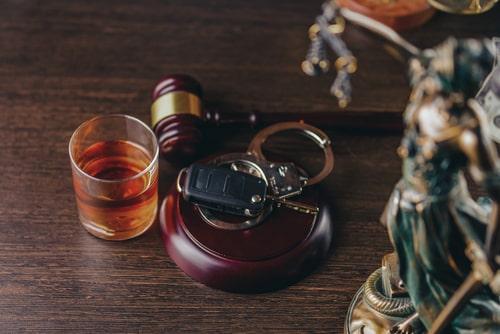How Do Field Sobriety Tests Affect DWI Cases in Texas?
 If a person is pulled over on suspicion of driving while intoxicated (DWI) in the state of Texas, there is a good chance that they will be asked to take field sobriety tests. These tests will involve certain types of physical tasks that are meant to help determine a driver's level of impairment and whether they have been drinking alcohol or have used other substances that have affected their ability to operate a vehicle safely. It is important to understand the role that field sobriety tests will play in a DWI case, including their purpose, their validity, and when they can be refused.
If a person is pulled over on suspicion of driving while intoxicated (DWI) in the state of Texas, there is a good chance that they will be asked to take field sobriety tests. These tests will involve certain types of physical tasks that are meant to help determine a driver's level of impairment and whether they have been drinking alcohol or have used other substances that have affected their ability to operate a vehicle safely. It is important to understand the role that field sobriety tests will play in a DWI case, including their purpose, their validity, and when they can be refused.
Understanding Field Sobriety Tests
When a police officer pulls a driver over because they believe the person may be intoxicated, they will observe the person and look for a reason to perform an arrest. To establish probable cause, or a strong belief that a person has violated the law, the officer may ask the driver to submit to field sobriety tests. These tests are designed to measure an individual’s physical coordination and their ability to follow instructions.
There are three types of standard field sobriety tests (SFSTs) that have been approved by the National Highway Traffic Safety Administration (NHTSA). The horizontal gaze nystagmus (HGN) test will involve an officer asking a person to follow an object with their eyes as they look for involuntary movements. In the walk-and-turn test, a driver will be asked to take several heel-to-toe steps in a straight line, turn around, and walk back to their original position. The officer will be watching to see if the person loses their balance or is unable to follow directions correctly. The one-leg stand test will require a person to stand with one foot raised off the ground for 30 seconds, and if they lose their balance or put their foot down, this may be seen as an indication that they are intoxicated.
In some cases, officers may also ask drivers to perform non-standard tests. These may include asking a person to touch their fingertip to their nose or having them count or recite the alphabet backwards. Even though these are not recognized as valid tests by the NHTSA, they may still be used to gauge a person's supposed level of intoxication and determine whether an arrest should be performed.
The Effects of Field Sobriety Tests on DWI Cases in Texas
While field sobriety tests may not be the deciding factor in determining whether a person will be convicted on DWI charges, they can play an important role in a case. An officer may testify in court and explain their observations of a driver and their reasons for performing an arrest. However, it is important to understand that these tests are not foolproof; they can sometimes be difficult even for sober people to pass. Law enforcement officers must follow strict rules when administering SFSTs, and any deviation from protocol could weaken the prosecution’s case against a driver.
In Texas, field sobriety tests are voluntary. Drivers are allowed to refuse to submit to tests, and this will not result in penalties. However, if an individual refuses to take part in field sobriety testing, then that refusal could be seen as an indication that they are intoxicated, and this may provide an officer with probable cause to arrest them. The person's refusal to submit to field sobriety testing may also be raised by a prosecutor during criminal proceedings.
Since field sobriety tests are not always reliable indicators of impairment, and they can be affected by factors such as fatigue or poor balance rather than alcohol or drug use, they will usually not be the deciding factor in a DWI conviction. Drivers are generally recommended to refuse field sobriety tests and avoid providing an officer with any reason to arrest them.
Contact Our Tarrant County DWI Lawyer for Field Sobriety Tests
Field sobriety tests may play an important role in DWI cases in Texas, but they do not tell the whole story when it comes to determining whether a person should be arrested or convicted on DWI charges. Anyone who has been arrested for drunk or intoxicated driving should seek legal counsel right away so that their rights will be protected throughout every step of the criminal justice process. At The Dameron Law Firm, our Fort Worth DWI defense attorney can provide the legal help you need in these situations. Contact our office at 817-222-0624 to schedule your free consultation.
Sources:
https://statutes.capitol.texas.gov/Docs/PE/htm/PE.49.htm
https://www.nhtsa.gov/sites/nhtsa.gov/files/documents/sfst_ig_refresher_manual.pdf

 817-222-0624
817-222-0624







